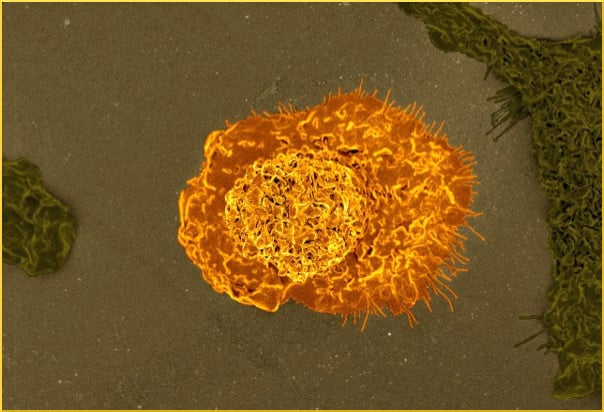
The far-flung empire of obesity research necessarily includes propositions and theories that strike some professionals as unlikely, if not seriously insane. But once a condition is acknowledged to be multifactorial, the gates are open for researchers to suggest, “Well, then maybe this is a factor,” or “Why not look into the possibility that this other thing might be a factor?”
And indeed, why not? Add to that the fact that some of science’s most exciting discoveries have been serendipitous, and it appears that an open mind might be the most important tool in the box.
We learned that pro-inflammatory macrophages trigger low-grade inflammation that also promotes systemic insulin resistance, for unknown reasons. Or… does the insulin resistance cause the inflammation? On that question, the jury is still out. Maybe it’s both! According to a 2018 study,
In adipose tissue, obesity-mediated insulin resistance correlates with the accumulation of pro-inflammatory macrophages and inflammation. However, the causal relationship of these events is unclear… Our findings suggest that insulin resistance in adipose tissue leads to inflammation rather than vice versa.
Another recent article about the role of macrophages describes the immune system as important in maintaining adipose tissue homeostasis and in promoting inflammation in an obese patient. In this research, the slant is that systemic low-grade inflammation (as found in obesity) leads to insulin resistance.
Although scientists are not ready to agree about the details, certain connections have become difficult to ignore or deny. Also:
The finding that monocytes infiltrate the adipose tissue and differentiate into macrophages was an important step to unveil the role of macrophages in obesity and its associated inflammation.
But adipose tissue physiology is far from all figured out, and nobody has nailed “the mechanisms by which immune cells, adipocytes and other factors work together to promote tissue inflammation.” Mysteries abound, abetted by the fact that everything, especially in a complicated organism like the human body, connects with and influences everything else.
As if matters were not complicated enough, heart disease figures into the equation too, because…
Obesity and diabetes are associated with chronic activation of inflammatory pathways that are important mechanistic links between insulin resistance, type 2 diabetes, and cardiovascular disease pathogenesis.
Well then, can those helpful yet troublesome macrophages be constructively interfered with? Can we purposefully change their inflammatory phenotypes? Is macrophage metabolism a legitimate object of epigenetic modification? In addition to mechanistically burning off calories, can exercise reach right down to the root of the problem and affect adipose tissue inflammation?
Cardiovascular disease is not the only related issue. Dr. Rhonda Patrick, a big fan of treatment through correct nutrition, notes that links have also been established between obesity and diabetes, well as Alzheimer’s Disease and Parkinson’s Disease:
This may be related to inflammation leading to the release of pro-inflammatory cytokines that cross the Blood Brain Barrier causing neural inflammation and thus aggregation of amyloid plaques.
Oh, and by the way, there is evidence that brain inflammation inhibits the release of serotonin, and so, thanks to chemicals brewed up inside adipose tissue, mood disorders and depression also crowd into the picture.
Your responses and feedback are welcome!
Source: “Insulin resistance causes inflammation in adipose tissue,” NIH.gov, 04/02/18
Source: “M1 Extra Weight in the Balance: The Role of Macrophages in Obesity,” JuniperPublishers.com, 06/19/18
Source: “Metabolic Regulation of Adipose Tissue Macrophage Function in Obesity and Diabetes,” LiebertPub.com, 06/20/18
Source: “The Joe Rogan Experience: Dr. Rhonda Patrick,” PodcastNotes.org, 09/08/15
Photo credit: NIAID on Visualhunt/CC BY

 FAQs and Media Requests:
FAQs and Media Requests: 











